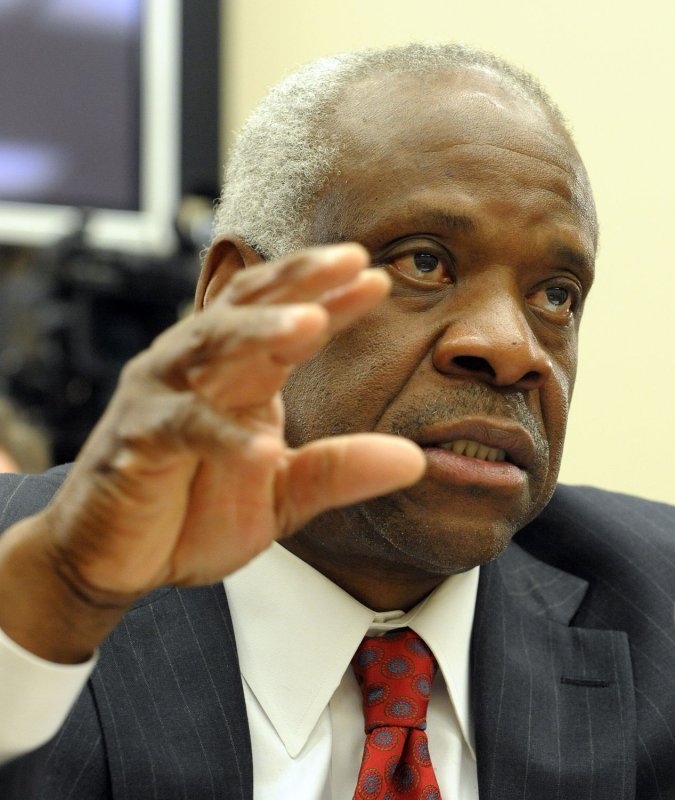Supreme Court Justice Clarence Thomas asked questions during oral court arguments Monday, the first time in 10 years the normally reticent justice has spoken from the bench. File Photo by Roger L. Wollenberg/UPI |
License Photo
WASHINGTON, Feb. 29 (UPI) -- U.S. Supreme Court Justice Clarence Thomas on Monday asked questions from the bench during oral arguments for the first time in 10 years.
Thomas has had a reputation for staying silent during proceedings, as other members of the court ask questions of attorneys to clarify statements. But on Monday, the first Supreme Court session after the death of Justice Antonin Scalia, Thomas was active and vocal.
The case before the court was Voisine v. United States, a low-profile criminal law case centering on the convictions of two men charged with domestic violence. The Supreme Court must determine whether a prior conviction of "reckless" domestic assault qualifies as federal misdemeanor domestic violence, which disqualifies the men from possessing firearms.
After Ilana Eisenstein, federal solicitor general, argued her case and took questions, Thomas asked how long the suspension of Second Amendment rights was for those prohibited by federal law to possess firearms, and whether Eisenstein knew of similar cases. Although the matter under discussion was not a Second Amendment case, Thomas appeared to be defending the amendment, which demands no government infringement on the right to bear arms. Support of the Second Amendment was a specialty of Scalia's.
"Let's say that a publisher is reckless about the use of children ... in indecent displays," he said, pondering whether the government could then permanently suspend that publisher's right of free press. It was one of a number of questions raised by Thomas.
Thomas has stated he regards the availability of the Supreme Court's question-and-answer protocol to be discourteous to the attorneys.
"I think it's unnecessary in deciding cases to ask that many questions, and I don't think it's helpful," he said in remarks made in 2013 at Harvard Law School. "I think we should listen to lawyers who are arguing their cases, and I think we should allow the advocates to advocate."















